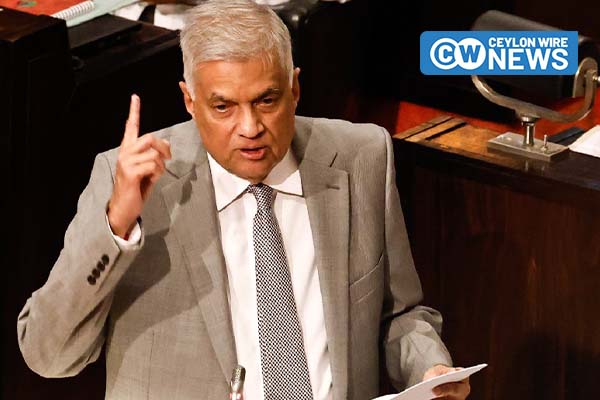President Ranil Wickremesinghe arrived at the parliament this morning (March 06) to deliver a special statement on the strides made in Sri Lanka’s economic recovery process. The parliamentary proceedings, overseen by Speaker Mahinda Yapa Abeywardena, commenced at approximately 9:30 a.m.
In his address to the Chamber, the Head of State highlighted the positive impact of the government’s ‘strenuous efforts’ in revitalizing the economy, expressing satisfaction that citizens are now reaping the benefits.
“We devised an ‘economic plan’ with the IMF. Through the implementation of this plan, the country steadily returned to normalcy, alleviating pressure and hardships for the people,” stated Wickremesinghe. He revealed that after six consecutive quarters of contraction, the country’s economy began to recover in Q3 of 2023. International financial institutions forecast a potential economic growth ranging from 2% to 3% for Sri Lanka in 2024.
President Wickremesinghe further disclosed that state revenue witnessed significant growth of over 50% in 2023 compared to 2022. “A surplus was achieved in the primary account last year, allowing the government to settle all outstanding payments owed to contractors who had provided services over the past 3-4 years,” he added.
Addressing inflation, the President noted a substantial decrease from 70% in September 2022 to a mere 5.9% in February 2024. He attributed this reduction to coordinated macroeconomic demand management efforts by both the Central Bank and the government, providing relief to small- and medium-scale enterprises (SMEs) and consumers.
Wickremesinghe also announced that usable foreign exchange reserves, which were less than USD 20 million in mid-April 2022, have now surged past USD 3 billion. Import restrictions, excluding private motor vehicles, have been lifted. Regarding debt restructuring negotiations, he expressed optimism that a successful outcome will reduce annual external debt payments from 9.5% to 4% of GDP. With sustained economic growth, he emphasized that servicing the debt will not burden the country’s finances.









